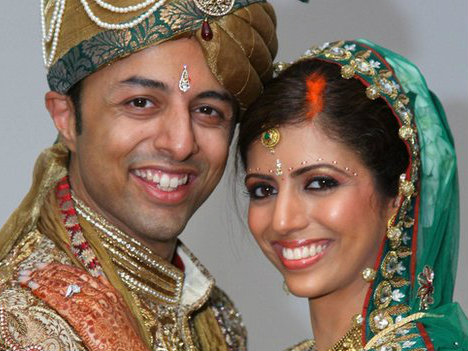One of the men convicted of murdering the bride of British businessman Shrien Dewani described in chilling court testimony Wednesday how he was asked to set up a hit on the young woman.
Mziwamadoda Qwabe told the Cape Town High Court that Dewani’s taxi driver had contacted him and told him “there was a husband who wanted his wife to be killed”.
He then detailed how he and an accomplice staged a hijacking, let the driver and Dewani go, and shot the woman before going out socialising with the cash they had made for killing her.
Dewani is accused of conspiring to have his 28-year-old Swedish-born wife Anni (nee Hindocha) murdered while they were on honeymoon in Cape Town in 2010.
The prosecution is expected to argue that wanted her dead because he is a gay man who felt trapped in an arranged marriage.
On the first day of the trial on Monday, in an apparent effort to pre-empt this argument, Dewani admitted to sex with male prostitutes but said he considered himself to be bisexual, and had been in love with his wife.
The millionaire businessman says that during the hijacking he was forced out of the vehicle at gunpoint before it drove off with his wife. She was later found shot dead.
A pathologist testified that there were no signs that she had been sexually assaulted.
Qwabe was sentenced to 25 years in jail for his role in the crime, under the terms of a plea bargain reached in August 2012.
His accomplice Xolile Mngeni is serving life for firing the lethal shot, while the taxi driver, Zola Tongo, is serving 18 years in jail.
Tongo said that Dewani had offered him 15,000 rand ($1,300, 1,000 euros) to have Anni killed.
Dewani said in his statement that he had offered that amount to Tongo to arrange a helicopter tour of Cape Town as a surprise for Anni.
He returned to Britain within days of her death, and fought a three-year legal battle to avoid being extradited to South Africa, claiming he had mental health problems, including depression and post-traumatic stress.
But he was sent back to South Africa in April, where he was found fit to stand trial.

COMMENTS
Please let us know if you're having issues with commenting.